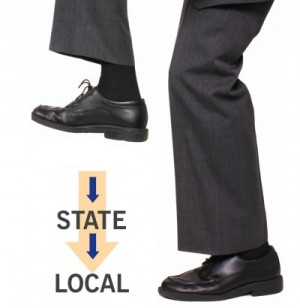

- This event has passed.
Please note that our normally scheduled First Monday Discussion will fall on the second Monday due to the July Fourth holiday. This event is open to funders and invited speakers only.
Co-sponsored with the Environmental Grantmakers Association (EGA), Grantmakers Concerned with Immigrants and Refugees (GCIR), Grantmakers Income Security Taskforce (GIST), Neighborhood Funders Group (NFG), Philanthropy New York, and Women Donors Network (WDN)
American cities have historically been places of innovation and incubation when it comes to advancing equity and inclusion. Today, however, they face a fast-growing threat. Since the 2010 midterm elections, state lawmakers have become more aggressive in their use of preemption to stop local lawmaking across a broad and expanding range of issues, including labor standards, civil rights, broadband, environmental protection, and public health. Preemption is now being used to negate elections, perpetuate racial and economic inequality, and limit local anti-discrimination efforts. The sheer number, significant reach, and punitive nature of these preemption laws have overwhelmed local officials and advocates, and sapped the problem-solving power of local governments critical to our representative democracy. Speakers will discuss the landscape of state preemption and share newly developed legal theories and strategies to push back preemption. We will also learn about the organizing and communications tactics that have been used in specific states protect the power of local democracy.
Moderated by Elizabeth Guernsey, Open Society Foundations
Speakers
Andrew Gillum, Mayor of Tallahassee + Campaign to Defend Local Solutions
Kim Haddow, Rockefeller Family Fund
Professor Nestor Davidson, Fordham Law School
Disclaimer
As with all FCCP events, the subject matter is strictly limited to non-partisan discussion as outlined in the agenda.